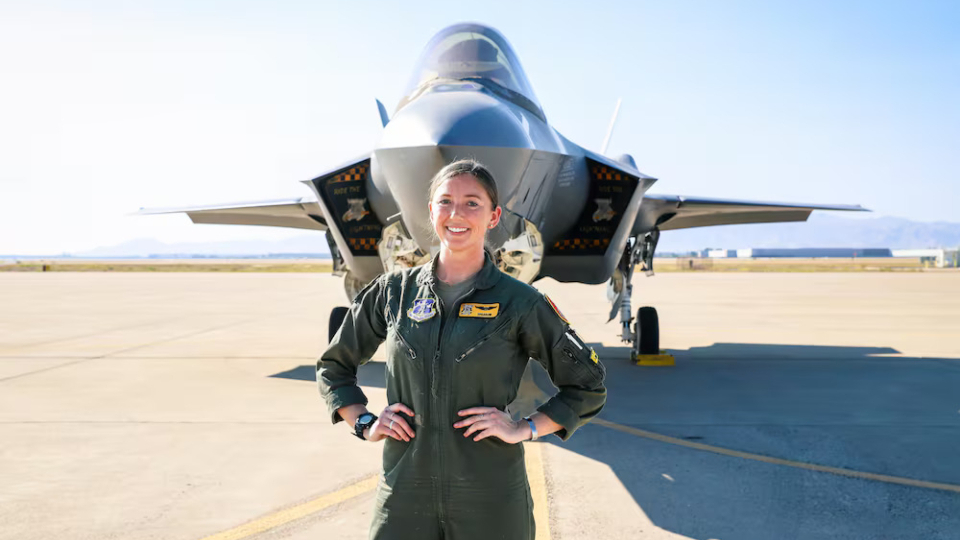
sista-savannah-raskey-1.jpg
1st Lt. Savannah Raskey is pictured in front of an F-35 at Luke Air Force Base in Maricopa County, Arizona, in 2024. Photo provided by Savannah Raskey, courtesy of Church News.All rights reserved.This story appears here courtesy of TheChurchNews.com. It is not for use by other media.
By Trent Toone, Church News
Upon completion of training, fighter pilots receive an official nickname referred to as a call sign, and it’s a big deal.
Pilots do not get to pick their own call signs. The call signs are assigned and often based on one’s personality, foibles or an embarrassing mistake, but they are given as part of the military camaraderie and tend to stick with the aviator for their entire career.
It’s rare to get cool-sounding call signs like “Maverick” and “Iceman” from the movies. Pilots are more likely to receive such names as “Meatloaf,” “Bus” or “Sidewalk” — and with a memorable story behind every name, according to a 2022 news article.
1st Lt. Savannah Raskey was willing to live with whatever call sign she was assigned, but she prayed repeatedly for one that would help her represent the Lord and The Church of Jesus Christ of Latter-day Saints.
“I prayed that I’d be given a call sign that I could use to emulate God’s light and love and that I could use it in a way that I could be a member missionary,” she said. “I didn’t serve a Church mission, but I feel like I was put here to serve in a different way.”
Her prayers were answered when she officially received the call sign, “Sista,” a name in which she finds deep meaning and spiritual purpose as a Latter-day Saint serving a unique mission in the military.
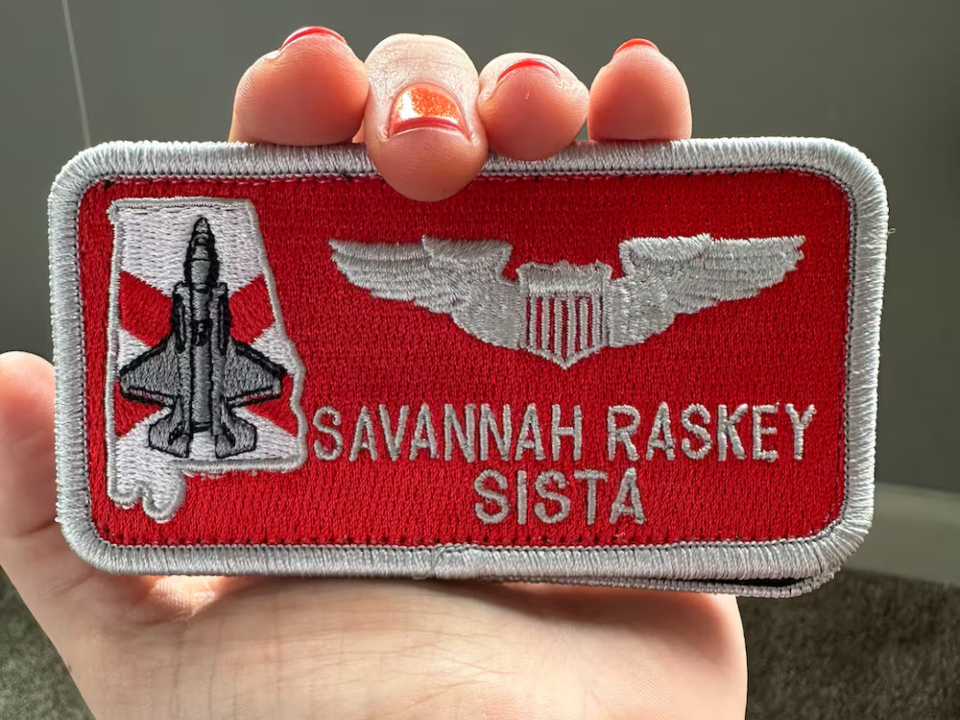
sista-savannah-raskey-2.jpg
1st Lt. Savannah Raskey, a Latter-day Saint, holds a patch showing her official call sign — "Sista." Photo provided by Savannah Raskey, courtesy of Church News.All rights reserved.“It’s cool to put that name tag on every day,” she said. “When I go to air shows or meet people, I introduce myself as ‘Sista,’ and it’s a constant reminder to me of what my priorities are so I can interact with people in a way that would be pleasing to God.”
Raskey serves in the Air National Guard of the U.S. Air Force and is stationed at Dannelly Field in Montgomery, Alabama, where she flies the F-35 with the 100th Fighter Squadron. The squadron paints its tail wings red in honor of the Tuskegee Airmen squadrons from World War II.
She also currently serves as the second counselor in the Relief Society presidency of the Millbrook Ward in the Montgomery Alabama Stake.
‘I Was Hooked’
What’s interesting about Raskey being a pilot is that she never aspired to be one when she was younger.
Raskey grew up in Orlando, Florida, in a predominantly Latter-day Saint family with a nonmember father who was an airline pilot. He wanted her to fly, but Raskey was more interested studying opera to become a singer.

sista-savannah-raskey-3.jpg
In 2017, before deciding to become an Air Force fighter pilot, Latter-day Saint Savannah Raskey auditioned for "America's Got Talent." Photo provided by Savannah Raskey, courtesy of Church News.All rights reserved.She joined the Utah Air National Guard at age 18 because she wanted to “challenge herself and be part of something bigger,” and she worked in maintenance.
A decade later, when she said her father finally stopped asking about flying, Raskey decided to give it one last chance and had a flying lesson. That was all it took.
“I was hooked,” she said. “I realized a big reason I didn’t want to fly was because I never considered myself that smart or capable. But something inside knew that if I worked hard enough, I could achieve anything.”
Raskey still dreamed of becoming a famous singer. In 2017, she auditioned for the televised talent show “America’s Got Talent” and progressed through the first round. But the second audition happened to fall on the same weekend that Raskey had an interview for a pilot position. She had to make a pivotal decision.
“I thought about what would bring me the most joy and satisfaction at the end of the day, and I knew that would be by serving my country,” she said. “I wanted to work hard and be the best that I could to help protect our men and women on the ground, to protect my family and to protect our freedoms in this amazing country.”
She began pilot training less than three years ago and graduated last January.
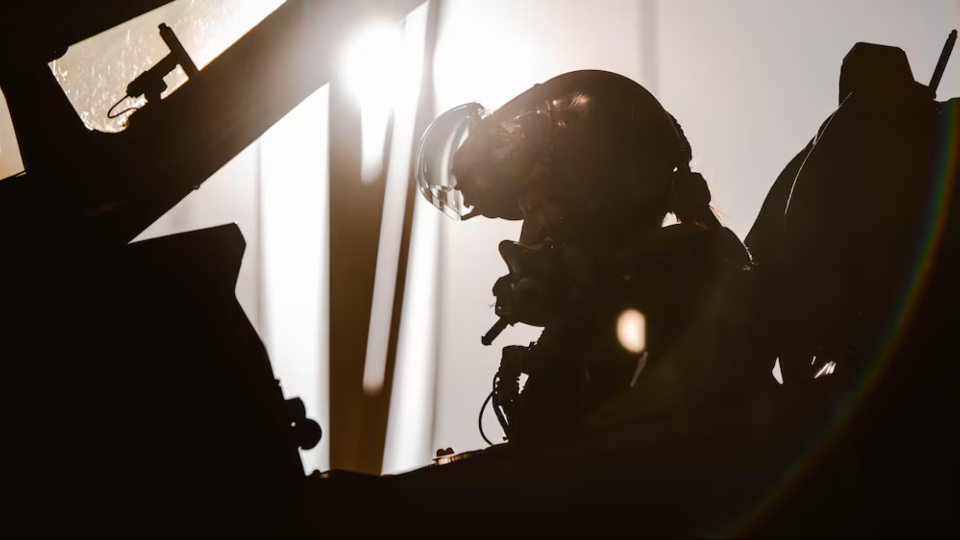
sista-savannah-raskey-4.jpg
1st Lt. Savannah Raskey prepares to take her first solo flight in an F-35 at Luke Air Force Base in Maricopa County, Arizona. Photo provided by Savannah Raskey, courtesy of Church News.All rights reserved.Relying on Faith
During her Air Force career, Raskey has had several experiences that have strengthened her faith and shaped her testimony.
One came after she enlisted and attended boot camp with a diverse group of 40 other women. Everyone wore the same uniform, with no makeup or anything that identified them individually.
Each night, Raskey prayed by her cot. The other women noticed her praying and often asked her to pray for them. She realized there was something special about having a connection with God — it was not something everyone had — and she wanted that heavenly support.
The past couple of years of pilot training have been the most difficult of her life. Greater spiritual strength came when she made the gospel of Jesus Christ her top priority over becoming a fighter pilot.
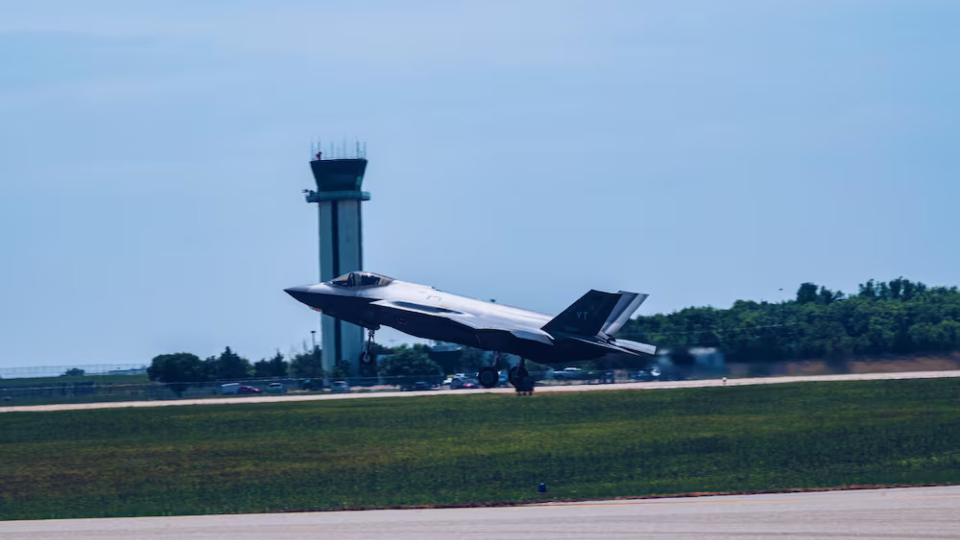
sista-savannah-raskey-5.jpg
1st Lt. Savannah Raskey takes off at Dannelly Field in Montgomery, Alabama, in 2024. Photo provided by Savannah Raskey, courtesy of Church News.All rights reserved.“When I did that, my testimony blossomed and solidified,” she said. “I realized that what matters most is what lasts the longest, and that’s my testimony and the gospel. ... I don’t identify my worth based off being a fighter pilot; I base it off of being a daughter of God.”
Being in the military has provided opportunities for Raskey to stand up in her values and beliefs. She was once told that she would never be a fighter pilot if she didn’t drink alcohol. She didn’t compromise.
“Sometimes there is a mindset that you have to fit this mold and do X-Y-Z to be accepted,” she said. “What I have seen time and time again is that the firmer I hold to my faith, the more I am respected.”
Inspiring Words
During challenging times, such as pilot training, Raskey has found inspiration and motivation in the gospel messages of Church leaders, including Elder Dieter F. Uchtdorf of the Quorum of the Twelve Apostles, with whom she feels a connection because of his background as a pilot.
Words from a 2009 BYU devotional by the late Jon M. Huntsman, a businessman and philanthropist who served as an Area Seventy, have also given her peace and reassurance on discouraging days.
“You and the Lord, working together, can accomplish anything,” Huntsman said. “Never forget — God did not put us here to fail.”
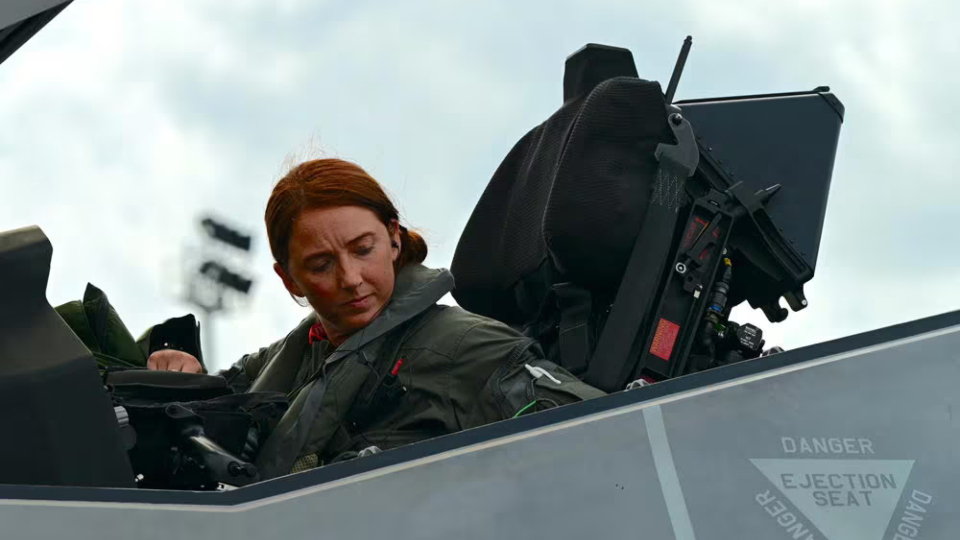
sista-savannah-raskey-6.jpg
1st Lt. Savannah Raskey sits in the cockpit of an F-35 during an exercise in Savannah, Georgia, in 2024. Photo provided by Savannah Raskey, courtesy of Church News.All rights reserved.Daughter of God
Raskey says she loves feeling close to God as she soars through the sky. She welcomes the challenge of her work — learning new tactics, improving as a fighter pilot, being a good member of her squadron and helping to protect her country. Most of all, she finds spiritual strength in knowing her divine identity.
“Being a fighter pilot is what I do. Being a daughter of God and becoming a better disciple of Jesus Christ is who I am,” she said. “I am grateful to see God’s hand through all the struggle and the triumph.”
Raskey is aware of other Latter-day Saint women who are pilots, but she has yet to meet another female fighter pilot who is a Church member. She hopes there are more out there.
Reflecting on her journey, Raskey said she feels honored and blessed to be a fighter pilot. She feels like the Lord has led her to where she is for a divine purpose. She hopes people who read her story will be inspired in their own journey.
“I want people to see me and think, ‘Wow, if she could get to where she is because she relied on God, then what can my life look like if I put Him first?’” she said. “I want people to realize that God is aware of them.”
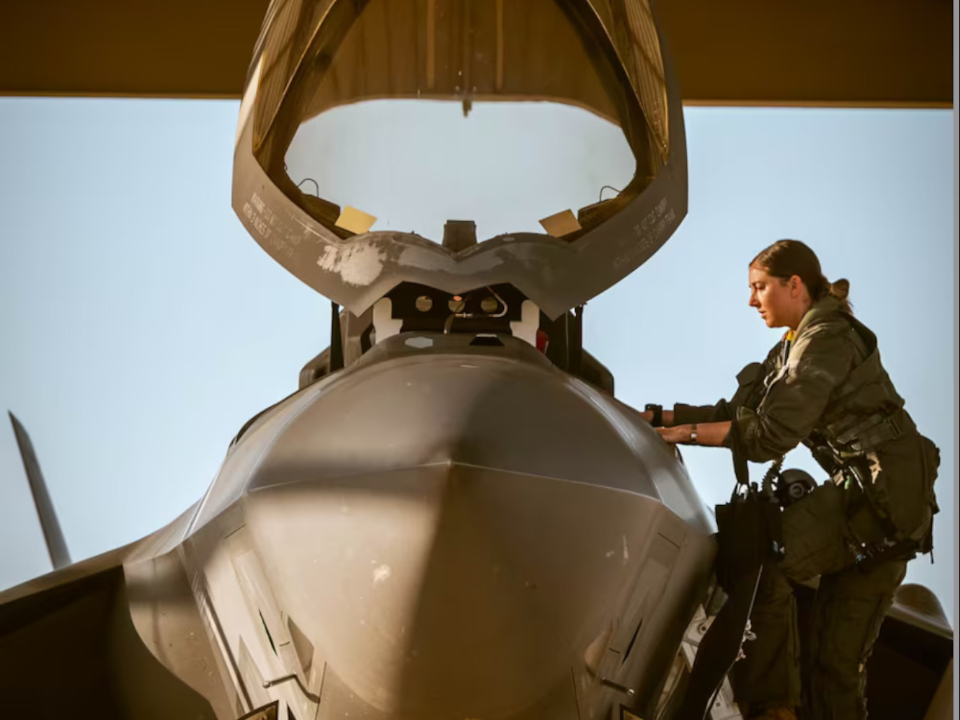
sista-savannah-raskey-7.jpg
1st Lt. Savannah Raskey climbs into the cockpit for a flight. Photo provided by Savannah Raskey, courtesy of Church News.All rights reserved.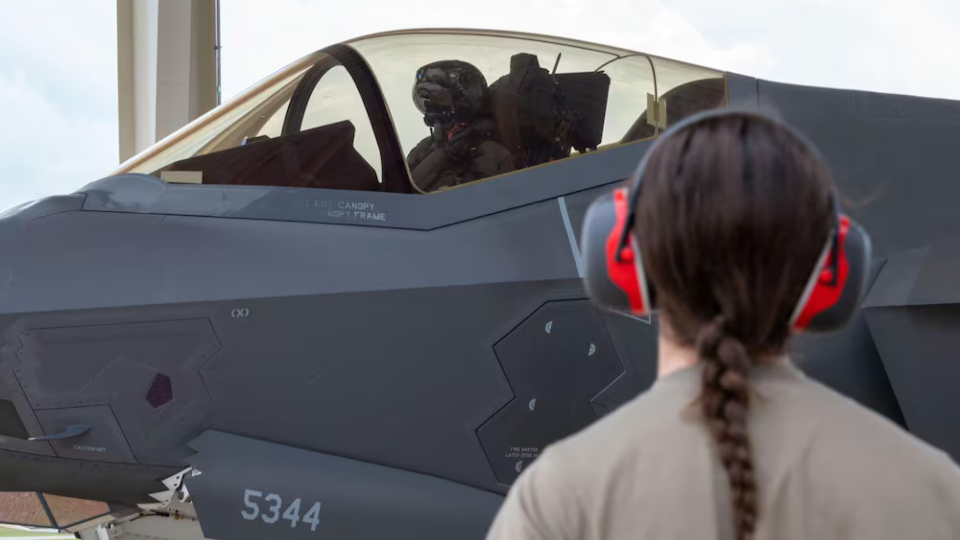
sista-savannah-raskey-8.jpg
1st Lt. Savannah Raskey sits in the cockpit as she prepares to take off at Dannelly Field in Montgomery, Alabama, in 2024. Photo provided by Savannah Raskey, courtesy of Church News.All rights reserved.Copyright 2024 Deseret News Publishing Company.